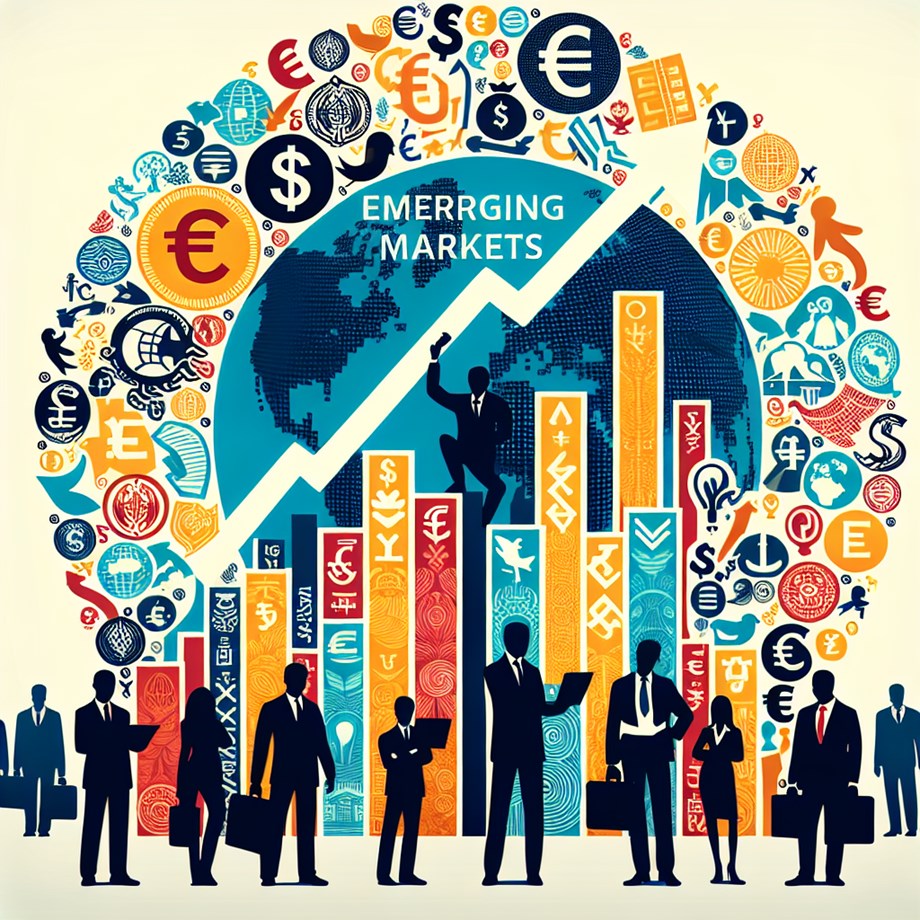Emerging Markets Rocked by Political Shifts
Election outcomes and economic shifts send ripples across emerging markets, putting investors on alert as stocks plunge and currency values waver.
Published June 05, 2024 - 00:06am

Image recovered from devdiscourse.com
Emerging market stocks have experienced a significant decline, with the MSCI EM equities index marking a steep 1.6% drop, exacerbated by the political and economic tremors felt around the world. Indian markets, in particular, faced substantial sell-offs as the final tallies of election results came in, opposing the sweeping victory that had been anticipated for Prime Minister Narendra Modi's alliance. With the Sensex and Nifty 50 both retracting over 5% from record highs, investors grappled with a weaker-than-expected mandate that could challenge the government's ability to implement reforms and heighten the need for welfare spending.
The ramifications extended beyond India as political uncertainty and signs of an economic slowdown in South Africa contributed to the decline of the South African rand and, simultaneously, highlighted vulnerabilities within Hungary and Poland's markets. These market movements reflect growing investor caution in light thesis a possible scale-back of the U.S. economy's recent strength. Compounded by a resurgent U.S. dollar, pressures are mounting on emerging market currencies, reshaping the landscape of global finance as reserve managers increasingly turn to the U.S. dollar in search of yield, a move away from the previously favorable Chinese yuan due to geopolitical strain and unappealing returns.
As the world's financial eyes turn towards Zambia's anticipated completion of a $13.4 billion debt restructuring under the G20-led 'Common Framework', there's a broader discussion emerging about the shifting strategies of global reserve managers. These strategic pivots underscore the delicate balance emerging markets must maintain in light of internal political dynamics and the rippling effects of major economies' performances.
The pullback of emerging market stocks, as highlighted by the sharp decline in the MSCI EM equities index, represents repercussions of a confluence of global factors. It underscores the fragility of markets that are intertwined with the political and economic climates across several nations. Indian stocks, which accounted for a significant portion of the selloff, mirrored investor sentiment following the election results. The not-as-strong-as-expected mandate for Prime Minister Modi's government casts doubt on the pace and breadth of policy reforms—reforms which are crucial for the country's trajectory towards economic modernization and growth.
This hesitation among investors is not confined to India; the South African rand's decline reflects a similar, broader pattern. In South Africa, investors are wary about the country's ability to manage its economic challenges amid political transitions and governance issues. The weakening currency in South Africa, along with financial vulnerabilities in Hungary and Poland, indicates a broader trend of skittishness amongst investors who are increasingly sensitive to nuanced shifts in policy and governance across emerging markets.
The U.S. economy's position and actions also ripple through these markets. The Federal Reserve's monetary policy decisions, which heavily influence the value of the U.S. dollar, play a pivotal role in the financial strategies of global reserve managers. As the dollar strengthens, it becomes more attractive for yield-seeking managers at the possible expense of other currencies, such as the Chinese yuan, which has been affected by geopolitical tensions. This heightened attractiveness of the dollar may leave emerging market currencies and assets less appealing, potentially increasing the cost of borrowing and prompting capital outflows.
Furthermore, reserve managers globally are monitoring the situation in Zambia. The nation's debt restructuring under the G20's Common Framework could set a precedent for other struggling economies. This process could signal a new era of debt resolution that may affect international lending and investment practices. Emerging market economies, with high levels of debt in foreign currencies, are particularly attentive to Zambia's case as a successful restructuring could provide a roadmap for their own financial challenges.
The recent upset in India, the performance of currencies like the South African rand, and the restructuring efforts in Zambia all have wide-reaching implications. They serve as a bellwether for the willingness of creditors to support ailing economies and the ability of emerging markets to navigate the complex global financial system. The uncertainty that currently plagues these markets has only been intensified by the global COVID-19 pandemic, which has thrown additional challenges into the mix, including disruptions in trade, tourism, and commodity prices—all vital revenue streams for emerging economies.
Looking ahead, market analysts and investors are keen to observe how policymakers in emerging market economies will respond to both internal and external pressures. There is an ongoing need for agile economic management to ensure resilience in the face of these headwinds. These events compel a reevaluation of risk and reward in emerging markets and will likely influence the strategic allocation of portfolios diversified across global assets for some time to come.
Ultimately, the recent downturn in emerging market stocks is a tale of interconnectedness in the global economy, mixed with political realities and policy decisions. It serves as a stark reminder that while emerging markets offer opportunities for growth, they also come with increased risk that requires continuous and careful assessment. As the global landscape evolves, so too must the strategies of investors and policymakers alike—the stakes for emerging economies, and indeed for the global financial system, could not be higher.







